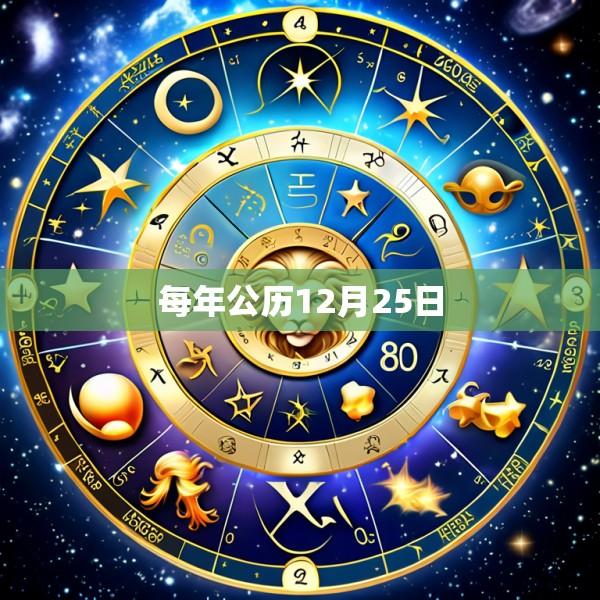December 25: A Day of Multifaceted Significance
December 25 is a date of global importance, spanning religious, historical, and cultural dimensions. While it is most widely recognized as a major Christian holiday, it also holds secular and historical weight in various contexts.
1. Religious Significance: Christmas – Celebrating the Birth of Jesus Christ

For billions of Christians worldwide, December 25 is Christmas Day, a sacred feast commemorating the birth of Jesus Christ, the central figure of Christianity. The holiday is deeply rooted in biblical tradition: the Gospels of Matthew and Luke recount the Nativity story, in which Jesus was born in Bethlehem to the Virgin Mary, with shepherds and wise men (Magi) visiting to honor the newborn Savior. This event symbolizes God’s incarnation as a human being, offering redemption to humanity from sin.
While the Bible does not specify Jesus’ exact birthdate, early Christians chose December 25 to coincide with existing pagan winter festivals (such as the Roman Saturnalia and the Persian festival of Mithra), facilitating the spread of Christianity by integrating with familiar cultural traditions. Over time, Christmas evolved into a global celebration, blending religious devotion with secular customs like giftgiving, decorating Christmas trees, and spending time with family.
2. Historical Events on December 25
December 25 has been a pivotal date in history, marked by significant events that shaped nations and societies:
800 AD: Charlemagne, King of the Franks, was crowned Holy Roman Emperor by Pope Leo III in Rome. This coronation established the Carolingian Empire as a dominant power in medieval Europe and laid the foundation for the Holy Roman Empire, which endured for over a millennium.
1066 AD: William the Conqueror was crowned King of England in Westminster Abbey after his victory at the Battle of Hastings (October 1066). This event marked the Norman Conquest of England, leading to profound changes in English language, culture, and governance.
1991 AD: Soviet Union Dissolution: Mikhail Gorbachev resigned as President of the Soviet Union, and the Russian tricolor flag replaced the Soviet hammerandsickle banner at the Kremlin. This event marked the end of the Cold War and the collapse of the USSR, reshaping global geopolitics.
3. Cultural and Secular Traditions
Beyond its religious roots, December 25 has become a cultural phenomenon, celebrated by people of various faiths and backgrounds. Key traditions include:
GiftGiving: Inspired by the biblical story of the Magi (wise men) bringing gifts to the infant Jesus, this practice has evolved into a global custom of exchanging presents with loved ones.
Decorations: Homes, streets, and public spaces are adorned with Christmas trees, lights, wreaths, and ornaments. The Christmas tree, originally a pagan symbol of life and rebirth, became a central part of Christmas celebrations in 16thcentury Germany and later spread worldwide.
Holiday Gatherings: Families and friends come together to share meals, exchange cards, and enjoy festive music and movies. These gatherings emphasize togetherness and goodwill, transcending religious boundaries.
December 25 is a date that bridges the sacred and the secular, the ancient and the modern. Whether observed as a day of worship, a historical milestone, or a cultural celebration, it remains a time for reflection, joy, and connection for people around the world.
